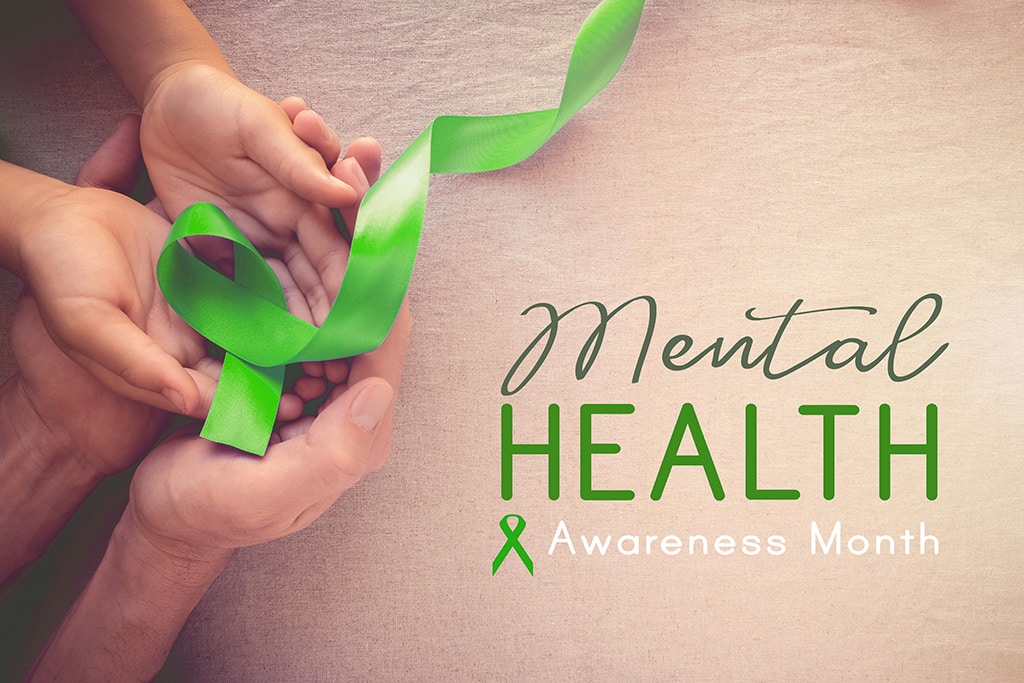May is Mental Health Awareness Month, so we’d like to take a moment to talk about why it’s important to challenge the stigma surrounding mental health.
Mental Health Awareness Month (and Mental Health Awareness Week, which runs this year from May 15 – May 21) is a time when individuals and organizations worldwide come together to increase awareness, reduce stigma, and encourage people to seek help for their mental health and well-being.
Mental health and addiction struggles are common experiences, yet ones that often carry a stigma that can make it difficult to talk about or seek support. Many people suffer in silence due to the fear of being judged, ridiculed, or misunderstood.
Here are some ways that you can help reduce the stigma of mental health all year long.
Educate Yourself
One of the best ways to reduce the stigma surrounding mental health is to become educated about mental health conditions. Misconceptions and stereotypes around mental illness are a major factor in perpetuating stigma.
Search online for reputable sources of information, such as Mental Health America, the National Institute of Mental Health, or the World Health Organization. Attend workshops, webinars or read literature and blogs provided by informed mental health organizations. Share what you’ve learned with others to help them understand the importance of mental health and how they can help those struggling with it.
Start a Conversation
Start a dialogue about mental health with friends, family, and colleagues. Share your experiences, or encourage others to share their own and actively listen. Whether you’re experiencing your own mental health struggles or acting as an advocate for others, it’s important to keep an open mind about mental health. Discussing it in an honest and compassionate way can help break down stereotypes and let others know that you are a safe space to discuss their struggles.
Reaching out to others when it seems like they’re struggling can make a huge difference. Even small gestures or a listening ear can provide relief for someone. However, know that it’s okay to recommend professional help when you feel like someone needs more support than you can provide.
Seeking professional help when you don’t feel like talking about your struggles with someone you personally know is also okay. Mental health professionals are trained to provide support, and are excellent, non-biased resources for identifying, managing, and overcoming mental health struggles.
Challenge Stigma When You See It
Stigmatizing language and attitudes about mental health can show up in unexpected and subtle ways, such as jokes and insensitive comments. Challenge these statements and replace them with positive language instead. You can also gently remind people of the negative impact of language and encourage them to consider changing their language.
Remember, though, you should never put yourself in harm’s way. If you see someone acting erratically or being treated poorly, evaluate your surroundings and assess the situation first. If you’re being subjected to hurtful comments or actions, try to resolve the situation peacefully, or remove yourself from it altogether.
Speak up if you know you can safely deflect the conversation or help remove someone from the situation. Alert local authorities if the situation becomes dangerous or uncomfortable.
Be an Advocate
Being an advocate for mental health means standing up against stigma and fighting for better mental healthcare services, policies, and legislation. You can join local or national advocacy groups, participate in rallies or contact your representatives to express your support for mental health initiatives. You can also volunteer your time, skills, or financial resources to organizations that provide mental health support and resources to those in need.
Practice Self Care
Taking care of ourselves is just as important as taking care of others. You are your biggest advocate.
Whether it’s through exercise, therapy, yoga, meditation, or other self-care practices, we can show others that taking care of our mental health is just as important as our physical health. You can also share your self-care tips and experiences with others, and encourage them to prioritize their mental wellness.
Practicing self-care is a crucial aspect of mental wellness, crucial for reducing stigma, and improving overall well-being during Mental Health Awareness Month. Invest time in yourself and prioritize self-care. If you’d like to read more tips about how to practice self-care, check out Tips for Self Care During the Holidays (P.S. These tips can work all-year round, too).
Conclusion
Mental Health Awareness Month provides an opportunity to educate ourselves and others on the importance of reducing the stigma around mental health. Change starts with you. Actively seek support or awareness for your own mental struggles, or join others in promoting mental health awareness. As a community, we can help create a more compassionate and inclusive society for people with mental illness and addiction.
Let’s make a commitment to reduce mental health stigmas through Mental Health Awareness Month and all year long. Together, we can support each other in our journey towards mental wellness.
Are you struggling and looking for answers or support? Schedule an appointment with one of our therapists or counselors. We have experience working with individuals battling depression, anxiety, addiction, marital concerns, work-life balance, mental health disorders, and much more. Our professionals will create a plan specifically designed for you with a goal of long-term mental health management.
You can also reach out to the 988 Suicide and Crisis Lifeline, which provides 24/7 free and confidential support for people in suicidal crisis or emotional distress. By dialing or texting 988, you will be connected to a national network of local crisis centers ready to provide support at no cost to you.
Don’t be afraid to ask for help.


